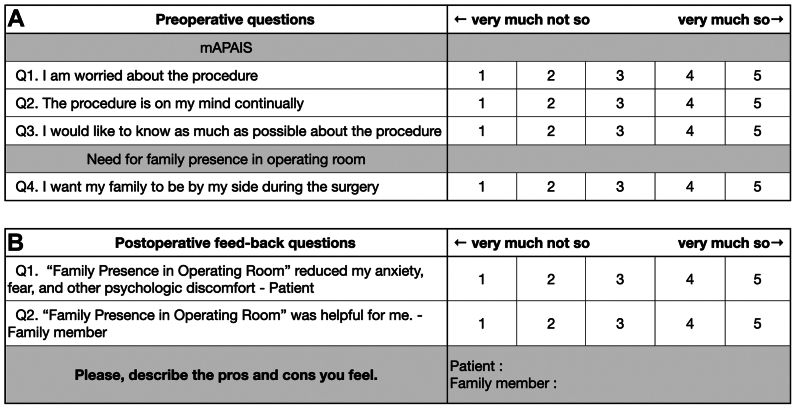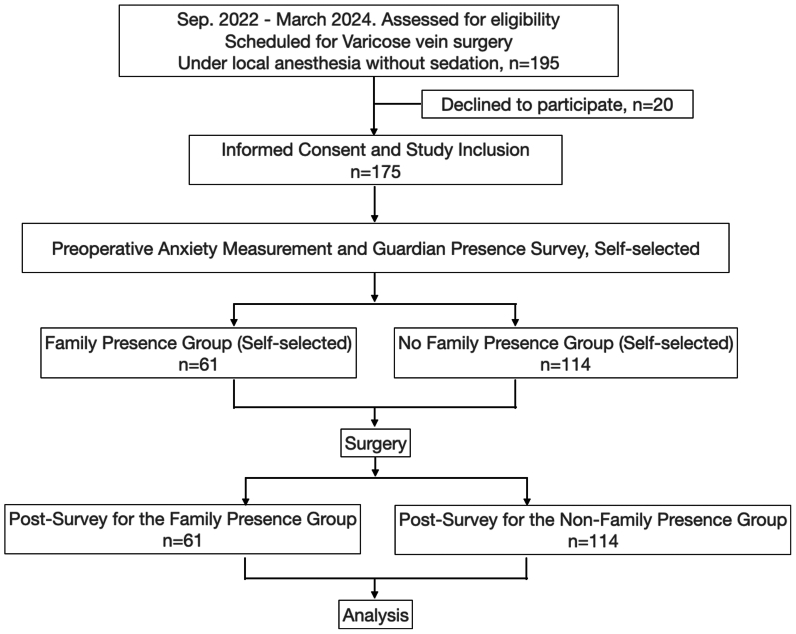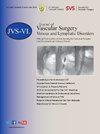Efficacy of family presence in the operating room during endovenous treatment: An EFFORT prospective observational study
IF 2.8
2区 医学
Q2 PERIPHERAL VASCULAR DISEASE
Journal of vascular surgery. Venous and lymphatic disorders
Pub Date : 2025-03-23
DOI:10.1016/j.jvsv.2025.102237
引用次数: 0
Abstract
Background
Varicose vein treatments are increasingly using ambulatory endovenous procedures under local anesthesia. Despite their safety and feasibility, these procedures may induce significant psychological distress, a concern not currently addressed by exist guidelines. This study investigates the necessity for family presence (FP) during endovenous procedures and its effects on the disease treatment process, hypothesizing that FP can provide emotional support and enhance patient trust in medical staff.
Methods
This single-center, prospective observational study, conducted from September 2022 to March 2024, enrolled 175 patients scheduled for outpatient endovenous treatments. Participants were divided based on their preference for FP during the surgery into FP (n = 61 [34.9%]) and no FP (NFP) (n = 114 [65.1%]) groups. The primary outcome was the influence of preoperative anxiety on the preference for FP, with secondary outcomes focusing on its impact on perioperative pain and postoperative satisfaction. Data collection followed the STROBE guidelines for observational studies, with preoperative anxiety assessed using a modified Amsterdam Preoperative Anxiety and Information Scale (mAPAIS).
Results
There were no significant demographic or clinical differences between the FP and NFP groups. In the NFP group, common reasons for declining FP included concerns about displaying anxiety (36%) and a perceived lack of necessity (29.8%). The FP group reported significantly higher mAPAIS scores (5.2±1.7 vs 4.4±1.5; P = .003) and a stronger preference for FP (3.4±1.1 vs 2.1±0.8; P = .001). Logistic regression analysis identified higher preoperative anxiety as a significant predictor of opting for FP (odds ratio, 1.41; 95% confidence interval, 1.07-1.88; P = .015). Most FP patients (78.7%) and guardians (85.2%) reported reduced anxiety, enhanced emotional support, and greater trust in the medical team. However, FP did not affect perioperative pain (P = .52) or postoperative 3-month satisfaction scores (P = .42). Adverse events led to FP discontinuation in two cases (3.3%) (one owing to nausea and one owing to syncope in the family members).
Conclusions
FP during endovenous procedures plays a crucial role in reducing preoperative anxiety and enhancing patient comfort. These findings suggest the potential for integrating FP into clinical guidelines for minimally invasive procedures, promoting a more patient-centered approach in surgical care. Future studies should investigate the conditions under which FP is most beneficial, taking into account both patient preferences and procedural specifics.


静脉内治疗期间家庭在场的疗效——一项EFFORT前瞻性观察研究。
简介:静脉曲张治疗越来越多地采用局部麻醉下的动态静脉内手术。尽管这些手术安全可行,但可能会引起严重的心理困扰——目前的指导方针并未解决这一问题。本研究探讨了家庭陪伴在静脉内手术过程中的必要性及其对疾病治疗过程的影响,并假设家庭陪伴可以提供情感支持,增强患者对医护人员的信任。方法:这项单中心前瞻性观察性研究于2022年9月至2024年3月进行,纳入175例门诊静脉内治疗患者。根据患者在手术过程中是否有家人在场的偏好,将患者分为有家人在场组(n=61, 34.9%)和无家人在场组(n= 114, 65.1%)。主要结局是术前焦虑对FP偏好的影响,次要结局关注其对围手术期疼痛和术后满意度的影响。数据收集遵循STROBE观察性研究指南,使用改良的阿姆斯特丹术前焦虑和信息量表(mAPAIS)评估术前焦虑。结果:在FP组和NFP组之间没有显著的人口学或临床差异。在NFP组中,降低FP的常见原因包括担心表现出焦虑(36%)和认为缺乏必要性(29.8%)。FP组的mAPAIS评分显著高于对照组(5.2±1.7比4.4±1.5,p=0.003),对FP的偏好更强(3.4±1.1比2.1±0.8,p=0.001)。Logistic回归分析发现术前较高的焦虑是选择FP的重要预测因素(OR = 1.41, 95% CI: 1.07-1.88, p = 0.015)。大多数计划生育患者(78.7%)和监护人(85.2%)报告焦虑减少,情感支持增强,对医疗团队的信任增强。然而,FP不影响围手术期疼痛(p = 0.52)或术后三个月满意度评分(p = 0.42)。不良事件导致2例(3.3%)患者停药(1例因恶心,1例因晕厥)。结论:在静脉内手术过程中,FP对减少患者术前焦虑、提高患者舒适度具有重要作用。这些发现表明,有可能将家庭参与纳入微创手术的临床指南,促进手术护理中更多以患者为中心的方法。未来的研究应考虑到患者的偏好和手术细节,调查在何种情况下计划生育是最有益的。
本文章由计算机程序翻译,如有差异,请以英文原文为准。
求助全文
约1分钟内获得全文
求助全文
来源期刊

Journal of vascular surgery. Venous and lymphatic disorders
SURGERYPERIPHERAL VASCULAR DISEASE&n-PERIPHERAL VASCULAR DISEASE
CiteScore
6.30
自引率
18.80%
发文量
328
审稿时长
71 days
期刊介绍:
Journal of Vascular Surgery: Venous and Lymphatic Disorders is one of a series of specialist journals launched by the Journal of Vascular Surgery. It aims to be the premier international Journal of medical, endovascular and surgical management of venous and lymphatic disorders. It publishes high quality clinical, research, case reports, techniques, and practice manuscripts related to all aspects of venous and lymphatic disorders, including malformations and wound care, with an emphasis on the practicing clinician. The journal seeks to provide novel and timely information to vascular surgeons, interventionalists, phlebologists, wound care specialists, and allied health professionals who treat patients presenting with vascular and lymphatic disorders. As the official publication of The Society for Vascular Surgery and the American Venous Forum, the Journal will publish, after peer review, selected papers presented at the annual meeting of these organizations and affiliated vascular societies, as well as original articles from members and non-members.
 求助内容:
求助内容: 应助结果提醒方式:
应助结果提醒方式:


